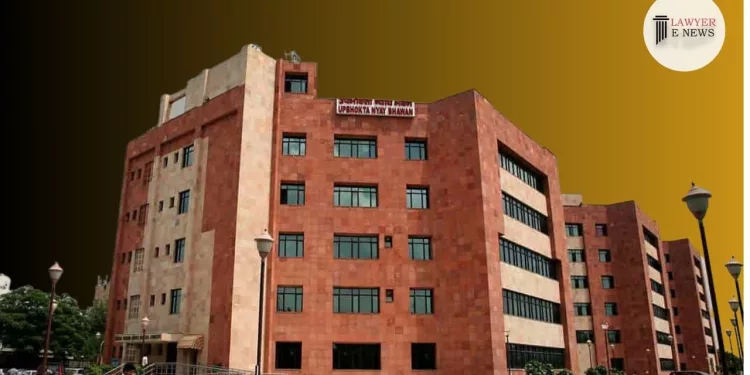Life Insurance Corporation of India Held Accountable for Lapsed Policies Due to Employer’s Default: NCDRC Dismisses Revision Petitions

The National Consumer Disputes Redressal Commission (NCDRC), presided over by Justice Sudip Ahluwalia, has dismissed two revision petitions filed by the Life Insurance Corporation of India (LIC) against the orders of the Andhra Pradesh State Consumer Disputes Redressal Commission. The key issue revolved around LIC’s liability to pay insurance claims despite the alleged lapse of policies due to non-payment of premiums.
Background: The cases, Revision Petition No. 1058 of 2017 and Revision Petition No. 1252 of 2017, emerged from appeals in which the Andhra Pradesh State Commission had affirmed the orders of the District Forum. The District Forum had directed LIC to pay insurance claims to the nominees of deceased policyholders Pittala Pochamma and Guguloth Jyoti. Both policyholders had policies under a salary savings scheme, and the policies allegedly lapsed due to the non-payment of premiums following the policyholders’ voluntary retirement.
Key Points of the Judgment:
Legal Reasoning: The NCDRC upheld the State Commission’s decision, emphasizing that the employer acts as an agent of the insurer under the salary savings scheme. Therefore, any default by the employer in remitting premiums should not penalize the insured.
Significant Quotes: The Commission cited the Supreme Court’s decision in “Chairman, LIC of India v. Rajiv Kumar Bhasker,” highlighting that the employer’s failure to remit premiums does not absolve the insurer of liability.
Final Ruling: Both revision petitions were dismissed, affirming the State Commission’s orders. LIC was directed to pay the policy benefits to the nominees despite the lapse due to non-payment of premiums.
Court Observations and Analysis:
The NCDRC analyzed the legal principles involved, particularly focusing on the employer’s role as the insurer’s agent. The court emphasized that LIC cannot evade responsibility due to the employer’s failure to remit premiums. The judgment drew heavily from the precedent set in “Chairman, LIC of India v. Rajiv Kumar Bhasker,” where the Supreme Court held that the insurer is liable for the employer’s omissions in the salary savings scheme.
The court also noted that LIC failed to inform the policyholders about the lapse of policies or the gaps in premium payments, which was a critical oversight. The court observed that the policyholders, being under the impression that premiums were being duly remitted, should not suffer due to the employer’s default.
Conclusion: This judgment underscores the importance of insurers ensuring that policyholders are adequately informed about the status of their policies, particularly in salary savings schemes where the employer acts as an intermediary. The dismissal of LIC’s revision petitions reinforces the insurer’s responsibility for omissions by the employer in such schemes. This ruling may prompt LIC to revisit its processes for communicating with policyholders and ensuring compliance by employers in similar schemes.
Date of Decision: 15th May 2024
Life Insurance Corporation of India vs. Pittala Pochamma @ Poschamma and Guguloth Jyoti @ Laxmi






